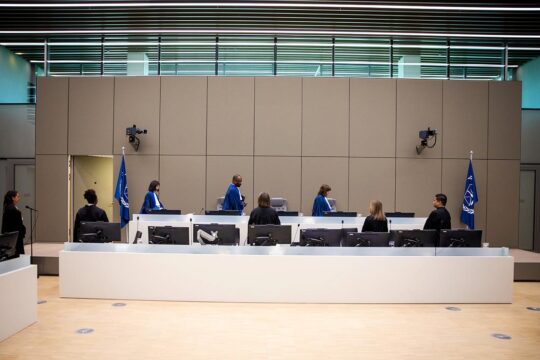More than eight million Malians will go to the polls on Sunday in a key electoral test for the fragile Sahel state, battling a wave of ethnic violence and jihadism.
President Ibrahim Boubacar Keita, 71, leads a crowded field of 24 candidates -- just one of them a woman -- bidding for the five-year presidency.
His record on security has been a dominant theme, with opponents, including several former ministers, accusing him of incompetence.
"He was elected with 77.6 percent of the vote, but he's been unable to resolve the country's main problems -- the restoration of peace and the issue of insecurity," said Abdoulaye Cisse, a supporter of candidate Modibo Sidibe, a former prime minister.
On the campaign trail, Keita -- commonly known by his initials of IBK -- has highlighted the achievement of a 2015 peace agreement between the government, government-allied groups and former Tuareg rebels to fight jihadism in the country's north.
Winding up his campaign Friday, having earlier accused jihadists of injecting "poison" by stirring up ethnic tensions, Keita told some 2,000 chanting supporters at his final rally that "my only crime is the love you bear me".
One supporter attending, Cheickna Traore, a young entrepreneur, insisted as Keita spoke of the "unbreakable bond" between him and his camp that there was no real alternative.
"Nobody can sort Mali out in five years. Nobody. If IBK goes then the next president will have to start again from square one. We don't want that, we want continuity."
But violence continues to flare, even with the presence of 15,000 UN peacekeepers and 4,500 French troops and a heralded five-nation anti-terror force, the G5 Sahel. A state of emergency is set to enter its fourth year in November.
More than 300 civilians have died in ethnic clashes this year, according to UN figures and an AFP toll.
Many deaths have occurred in the central region of Mopti, involving the Fulani nomadic herder community and Bambara and Dogon farmers.
Four days before polling day, armed men -- described as Dogon hunters -- killed 17 Fulani civilians in the village of Somena, Fulani representatives said Friday.
Jihadist violence, meanwhile, has spread from northern Mali to the centre and south and spilled over into neighbouring Burkina Faso and Niger, often inflaming communal conflicts.
- Security and observers -
Amid concerns that the vote could not be held in some restive areas, more than 30,000 personnel have been drafted to ensure security.
The European Union, the African Union (AU), the Economic Community of West African States (ECOWAS) and the International Organisation of La Francophonie (OIF) are fielding election observers.
Keita's challengers are headed by Soumaila Cisse, 68, a former finance and economy minister, who lost by a large margin in the second round of the 2013 election.
His team have warned of possible fraud, claiming that there are two electoral lists and hundreds of fake polling stations.
For Cisse, Mali "is dying". In the centre of the country, "there is no administration, more than 500 schools have closed, no more health centres, investment in water", he told AFP in an interview Friday.
Cisse blamed recent bouts of inter-communal violence on "poverty, first of all, which has risen these past few years. That creates tension, difficulties, competition for resources".
He also slammed "a real lack of state authority", meaning "some citizens end up meting out their own justice and that is very dangerous".
Cisse urged all sectors of society to engage in dialogue and to prioritise better healthcare and education as motors of development, while rejecting all-pervasive corruption.
He termed the continuing problem of jihadist violence as a global, rather than African problem and urged the next government to apply the 2015 peace accord.
The government needed, he said, to show it had "the sincere desire" to do so.
Jihadist leader Iyad Ag Ghaly, a Tuareg and leader of Mali's main Al-Qaeda-linked jihadist alliance, insisted in a message Friday that whatever the outcome the people would reap "nothing but illusions".
Voting, starting at 0800 GMT, is scheduled to close at 1800 GMT. Turnout is typically below 50 percent in Mali during the first round of voting.
The first results are expected within 48 hours, with official results following on Friday at the latest.
If any candidate fails to secure more than half of the ballots, a second round will take place on August 12.
bur-siu/ri/cw/har/kaf


